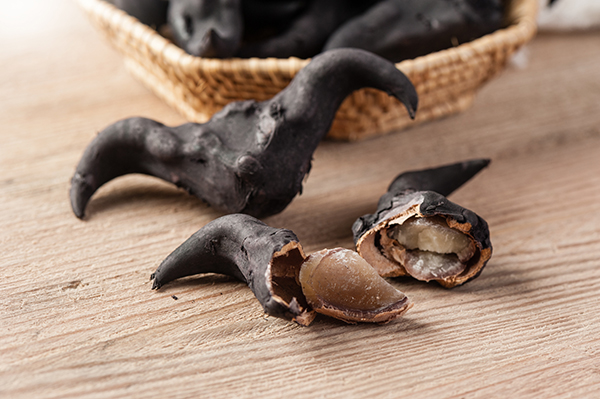Study reveals fermented water chestnuts help with symptoms of balding, hair loss
01/26/2020 / By Evangelyn Rodriguez

Alopecia is an autoimmune disease in which the immune system mistakenly attacks hair follicles, causing bald patches and massive hair loss. The condition usually develops during childhood or a person’s teenage years, but in some cases, people develop it in their 30s. While it is not lethal, there is no known cure for alopecia. The only consolation for people with this disease is that it doesn’t permanently damage hair follicles, so there’s still a chance for their hair to regrow. Additionally, contrary to popular belief, alopecia is not a sign of cancer. People who develop this disease are otherwise healthy.
Alopecia treatment usually involves the use of topical or injectable corticosteroids. While these can stimulate hair growth, topical corticosteroids cause undesirable side effects. Fortunately, researchers from South Korea may have found a potential remedy for alopecia that comes from natural sources. In their study, published in the journal BMC Complementary and Alternative Medicine, they reported that Bacillus/Trapa japonica fruit ferment filtrate extracts (TJFs) could enhance the proliferation and migration of human hair follicle dermal papilla (HDP) cells. These specialized cells play an important role in hair growth. The effects of TJFs on HDP cells suggest that Trapa japonica can potentially be used to treat alopecia. (Related: A member of the mint family, the beefsteak plant has been shown to promote hair growth.)
Fermented fruit extract inhibits hair loss biomarkers
Despite modern medical advances, the number of alopecia cases continues to grow. Stressful living environments contribute to the increased incidence of this autoimmune disease. So far, only one drug has been approved by the U.S. Food and Drug Administration (FDA) for alopecia, so interest in discovering new and better therapies for promoting hair growth has increased within the scientific community.
Fermentation is an age-old process that has found use in the development of new medicines. Scientists rely on fermentation to break down natural products by natural means. Through fermentation, unabsorbed glycosides in the intestines can be converted into pharmaceutical compounds with higher bioavailability. For their study, the Korean researchers decided to use fermentation for the bioconversion of T. japonica fruits.
T. japonica, commonly referred to as water chestnut, is an aquatic plant found floating in ponds or other slow-moving bodies of water. In East Asia, the different parts of T. japonica are used as food and in traditional medicine. T. japonica is said to have antioxidant and anti-cancer properties; however, its chemical components have not yet been identified.
To address this, the researchers analyzed extracts obtained from fermented T. japonica fruits for chemical characterization. They also examined the effects of TJFs on HDP cells and investigated whether or not their mechanism of action involved the activation of the Akt/ERK/GSK-3B signaling pathway. This pathway regulates cell viability and apoptosis in many cell types, including pluripotent stem cells.
Using various analyses, the researchers confirmed that TJFs contain numerous peptides and five unknown fractions. Meanwhile, different cell assays showed that TJFs stimulated HDP cell proliferation and migration via the Akt/ERK/GSK-3B signaling pathway. This was confirmed by treating HDP cells with an AKT inhibitor (LY294002), a GSK-3B inhibitor (BIO) and an ERK inhibitor (PD98059) and comparing the results.
The TJFs also induced cell cycle progression, inhibited type I 5a-reductase, decreased apoptosis and enhanced angiogenesis. Type I 5a-reductase is an enzyme that converts testosterone into dihydrotestosterone (DHT). DHT can cause hair follicles to shrink and is the number one contributor to male pattern hair loss. Aside from these, the researchers also detected the presence of proteins that stimulate hair growth in their 3D cell culture model.
Based on these results, the researchers concluded that TJFs can enhance HDP cell proliferation and can be used for the treatment of alopecia.
Sources include:
BMCComplementAlternMed.BiomedCentral.com
Submit a correction >>
Tagged Under:
alopecia, alternative medicine, balding, fermentation, food cures, food is medicine, fruits, hair loss, herbal medicine, natural medicine, phytonutrients, remedies, research
This article may contain statements that reflect the opinion of the author
RECENT NEWS & ARTICLES
COPYRIGHT © 2017 ALTERNATIVE MEDICINE NEWS





















